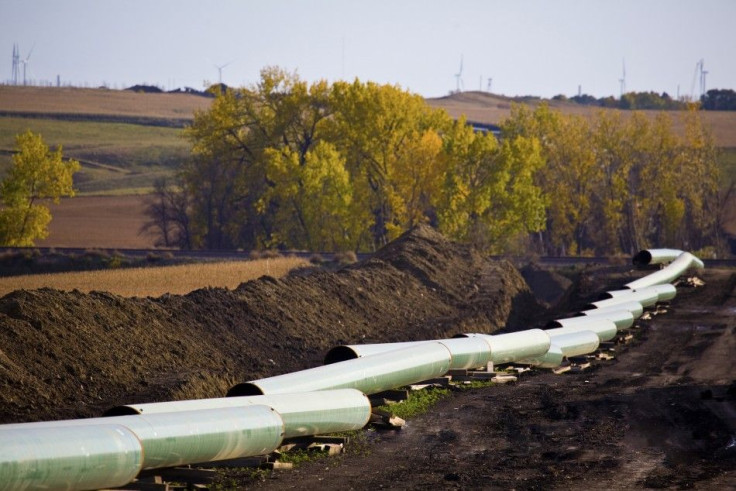Will Keystone XL Pipeline Increase Gasoline Prices?

Gas prices are a potent weapon in an election year. TransCanada Corp's proposed $7-billion Keystone XL pipeline, which would move 800,000 barrels of oil a day from Alberta, Canada, to the Texas Gulf, has suddenly become an inalienable part in the election rhetoric.
If that much oil is moved to the Gulf Cost, wouldn't that go a long way to reduce the price of gasoline in the country? The Republicans say yes and berate President Obama for stalling the construction process in November. They also point out that the project will immediately create tens of thousands of jobs.
Obama and the Democrats say gas prices don't have a simplistic, short-term fix and that more supply doesn't invariably reduce prices.
Where does the truth lie? What are the low downs of the Keystone XL pipeline?
The Keystone debate revolves around three arguments -- one that claims the pipeline will lower gas prices in the country, the second that says it will not have much impact on the price and the third that warns that the pipeline will cause an increase in prices.
Bloomberg quoted Stephen Schork, president of the Schork Group industry consultants, as saying that the pipeline would lower gas prices. Bringing these barrels to the Gulf would certainly have a dampening impact ... Getting more high quality, cheap oil to the market is the direction we need to go to see lower gasoline prices, Schork said.
However, according to consultant Ray Perryman, the impact will be minimal. Perryman, who was hired by TransCanada to assess the economic impact of the project, told Bloomberg that Keystone XL might lower the average cost of gasoline across the U.S. by up to 4 cents a gallon.
And then there are a lot of opponents of the oil lobby who say the pipeline will only cause an increase in prices.
The proposed pipeline would relieve a glut of crude oil backing up in the Midwest and redirect those barrels to Gulf of Mexico ports. From there they could be shipped to world markets and repriced at higher global prices, John W. Schoen wrote in MSNC.
But that likely would mean higher prices for drivers in the nation's midsection, who currently are enjoying an unusual discount stemming from a lack of pipeline capacity, he argued.
The Keystone XL pipeline will ship across American heartland gas that isn't earmarked for domestic U.S. consumption but for companies intending to ship much of it to South Africa, Europe and Asia, Madeline Friday wrote in NWTimes.
... Gas prices would rise all across the Midwest. If greens could get the message that Keystone will spike gas prices pegged to the story of a foreign oil company building a pipeline through middle America, the phony 'jobs' messaging would fizzle out, Brian Merchant wrote in treehugger.com.
The Keystone XL pipeline is far from a free lunch, 24/7 Wall Street wrote. It will not make the U.S. any more energy independent and it certainly will not lower gasoline prices, the article said.
The proposed 1,700-mile Keystone XL pipeline will not make the U.S. more energy independent nor will it lower gasoline prices. If anything, the pipeline from western Canada's oil sands to the U.S. Gulf Coast will raise gasoline prices for many U.S. drivers.
© Copyright IBTimes 2024. All rights reserved.




















